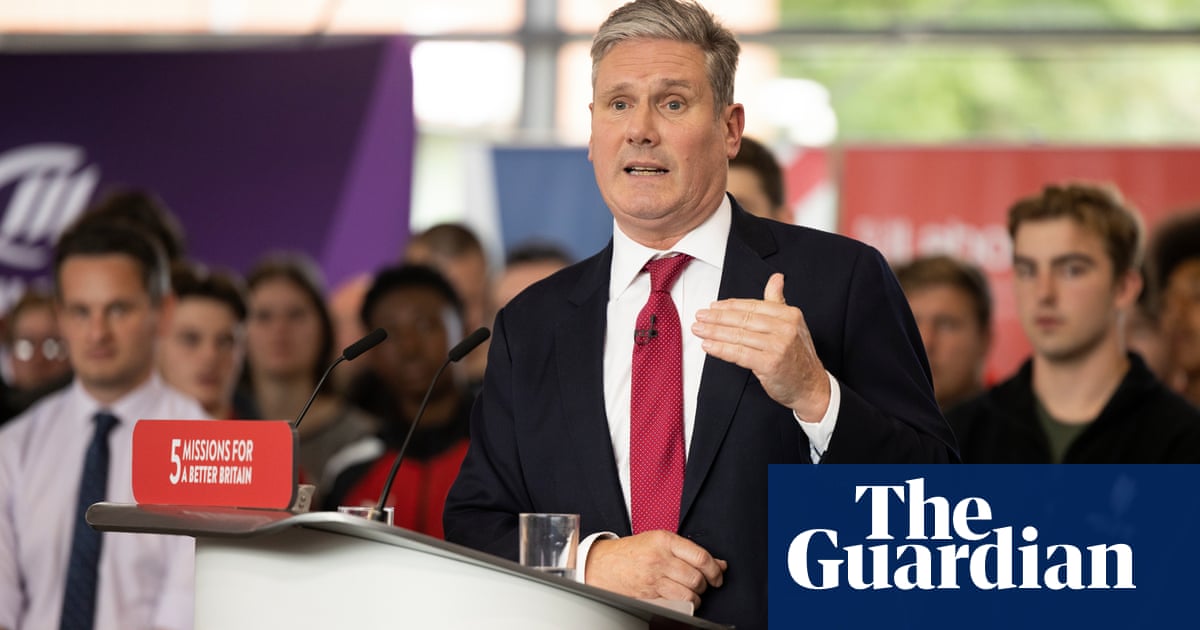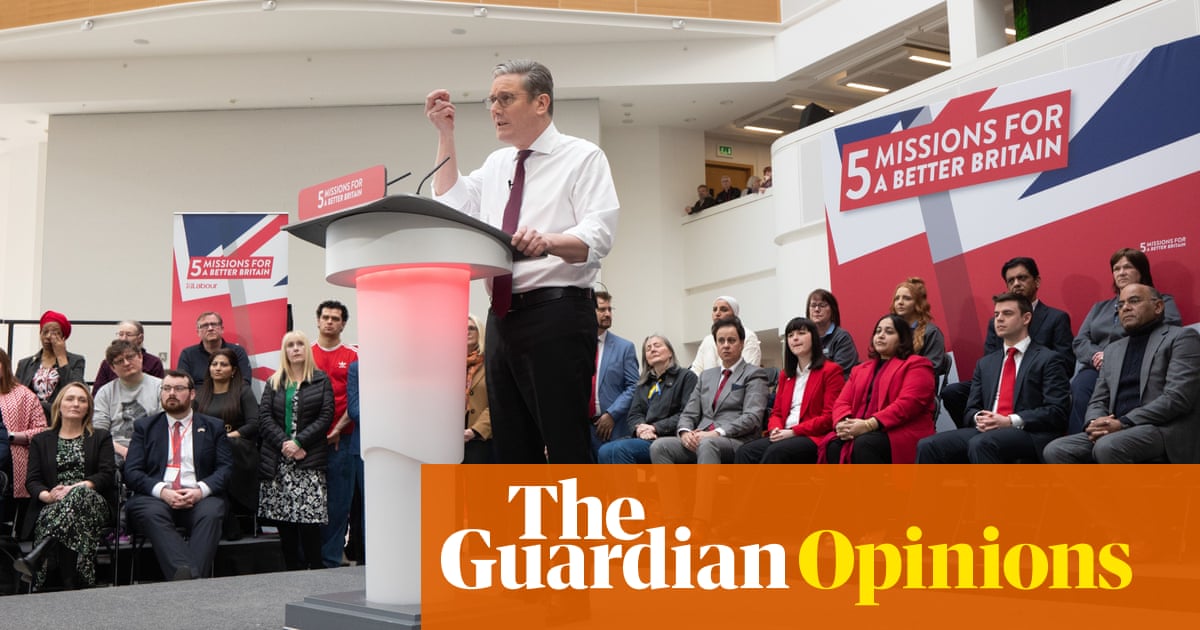
Keir Starmer will promise to slash red tape and “rip out the bureaucracy that blocks investment” as he hosts hundreds of global business executives for a major summit in central London.
After a troubled run-up to the event, including a bruising row with the Dubai-based owner of P&O Ferries, the prime minister will urge the world’s largest businesses to invest in the UK, promising them stable policy and low regulation as an incentive to do so.
Starmer will say in his keynote speech on Monday: “We’ve got to look at regulation where it is needlessly holding back the investment, to take our country forward.
“Where it is stopping us building the homes, the datacentres, warehouses, grid connectors, roads, train lines, you name it then mark my words – we will get rid of it. We will rip out the bureaucracy that blocks investment and we will make sure that every regulator in this country take growth as seriously as this room does.”
Some in the union movement expressed concern at the prospect of another deregulatory push, with one likening Starmer’s tone to that of his predecessor David Cameron, who swept away building safety regulations as part of a “bonfire of red tape”.
The prime minister is looking to woo foreign capital as part of the government’s push to get the economy growing again, and has already announced billions of pounds’ worth of investment from companies including Amazon and Blackstone.
Among the speakers for Monday’s summit at the Guildhall are Ruth Porat, the president of Google’s parent company Alphabet, David Ricks, the chief executive of the drug company Eli Lilly, and Larry Fink, the chief executive of BlackRock.
Ministers have already begun rolling out big changes to the planning system to encourage building, including removing a de facto ban on onshore windfarms and promising to make it easier to build on the green belt.
Starmer’s comments at the investment summit suggest the government is likely to go further.
No 10 would not say which regulations are likely to be in scope, but officials said they wanted to review the remit of large regulators such as the Competition and Markets Authority to focus on growth as their main priority.
As well as the deregulatory drive, the chancellor, Rachel Reeves, will unveil a green paper detailing the government’s industrial strategy, which officials say will be focused on eight growth-driving sectors.
And as the final element of the government’s business charm offensive, attenders will then be invited to a reception at St Paul’s Cathedral also attended by King Charles.
“We are focusing on investment because the mission of growth, in this country especially, demands it,” Starmer will say. “Private sector investment is the way we rebuild our country and pay our way in the world. This is a great moment to back Britain.”
But while Starmer’s pro-business drive has already managed to attract billions of pounds of new investment, it has also caused ructions within his own party and among trade unions.
Unions have warned the industrial strategy is unlikely to make a difference if the government is unwilling to bail out businesses such as Grangemouth, the Scottish oil refinery threatened with closure.
Sharon Graham, the general secretary of Unite, said on Sunday: “What is happening in Grangemouth is an act of industrial vandalism … We cannot have a situation where the state writes blank cheques for corporations, who then refuse to protect jobs.”
Some in the union movement are also concerned about the prospect of another deregulatory push, after similar moves under Conservative prime ministers.
One union source likened Starmer’s words to Cameron’s “bonfire of red tape”. “The coalition also had a massive shake-up of red tape, and ended up taking out loads of safety regulations,” the source said.
Others are troubled by the involvement in the summit of Macquarie, the investment fund that was highly criticised over the way it ran Thames Water. The Australian investment firm will announce on Monday a £20bn package of planned investments in Britain, including to roll out a network of fast-charging electric vehicle infrastructure nationwide.
Matt Wrack, the general secretary of the Fire Brigades Union, said: “The prime minister should use the government’s investment summit to announce an end to this great water privatisation ripoff, and the renationalisation of this vital public service.”
The prime minister is also dealing with the fallout from a damaging cabinet row over the attendance at the summit of DP World, which owns P&O Ferries.
DP World had threatened to pull out of the summit and cancel a planned £1bn investment after the transport secretary called the ferry company a “rogue operator”. Referring to the company’s controversial decision in 2022 to fire 800 staff without notice, Louise Haigh also said she was boycotting the company and had encouraged her department not to deal with it.
DP World has now confirmed it will attend the summit, but only after Starmer and the business secretary, Jonathan Reynolds, both publicly disowned Haigh’s comments. Allies of Haigh say she has been left feeling “hung out to dry” by the row, having not been told beforehand that DP World was involved in Monday’s event.
Many business executives say however that the bigger hurdle to inward investment in the UK is the prospect of tax rises in this month’s budget. Reeves is considering a range of tax hikes, including to capital gains and employer pension contributions, in an attempt to fix the government finances.
Charlie Nunn, the chief executive of Lloyds Bank, warned on Sunday against any tax increase that could stymie growth. “Anything that helps people continue to invest and take appropriate risk is really important; anything that does the opposite would be a handbrake,” he told the BBC.
He added: “Pensions, and contributions to pensions, is critical. We see about 40% of people in the UK have a pension which won’t give them even a basic living allowance when they retire. So we need to increase enrolment and investments in pensions.”












